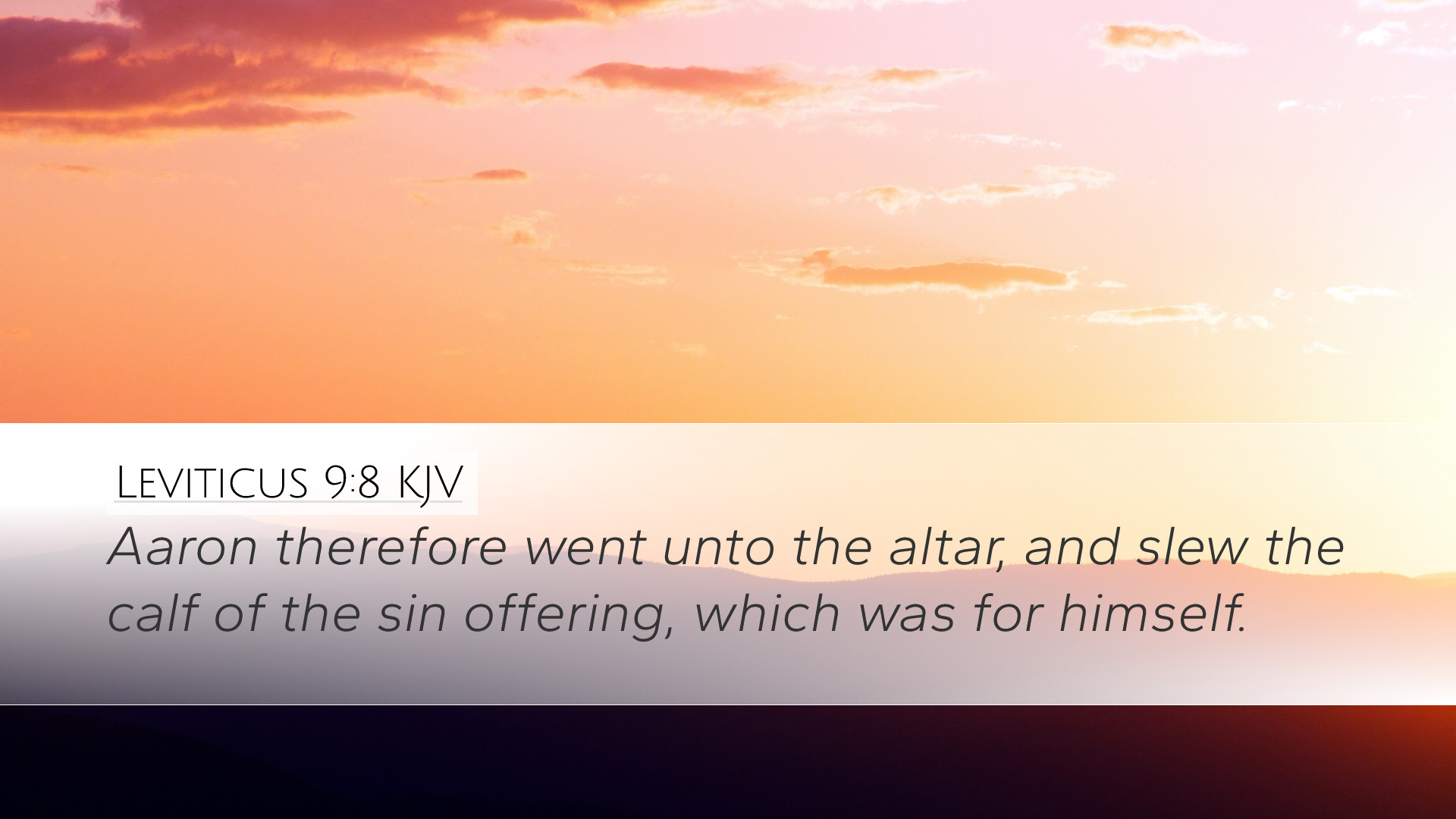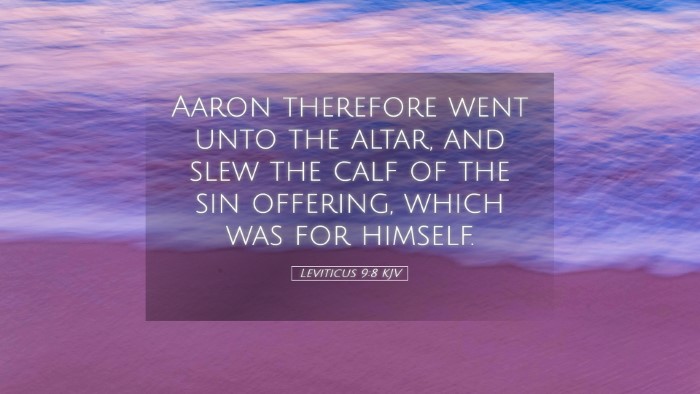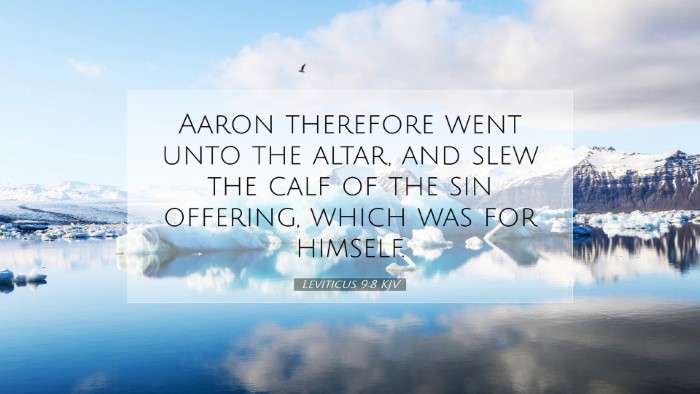Commentary on Leviticus 9:8
Leviticus 9:8 states: "Aaron therefore went unto the altar, and slew the calf of the sin offering, which was for himself." This moment marks a critical juncture in the priestly duties as ordained by God. The observances encapsulated here outline the seriousness of the sacrificial system, which serves as a pivotal element in the relationship between God and His people.
Contextual Background
The book of Leviticus is fundamentally about the laws governing the Israelites, particularly those regarding worship and purity. Chapters 8 and 9 emphasize the consecration of Aaron and his sons as priests, culminating in this vital act of sacrifice. This passage illustrates the principle that before any sacrifice could be made on behalf of the people, the priest himself must first be sanctified.
The Meaning of the Sin Offering
In understanding the significance of Aaron’s action, it is essential to delve into the nature of the sin offering. As Matthew Henry notes, "the sin offering emphasizes the need for atonement and the continual presence of sin." The sacrifice Aaron performs highlights the punishment for sin and signals the necessity of substitutionary atonement, foundational truths reiterated throughout scripture.
- Symbolism of the Calf: The choice of a calf represents purity and is significant in its association with prosperity and the agrarian lifestyle of the Israelites.
- Substitutionary Atonement: The calf being offered in place of Aaron reflects the overarching theme throughout scripture wherein innocent life is sacrificed for the guilty.
- Preparation for Ministry: This act not only propitiates God's wrath against Aaron's sins but also sets the stage for his ministry towards the people.
The Role of the Priest
Aaron’s action reveals the critical role of the priest in ancient Israel. Albert Barnes emphasizes that "the priest’s function was to mediate between God and the people, requiring him to be pure before approaching God on behalf of others." The act of slaying the calf underscores a deliberate act of obedience, adherence to divine instruction, and recognition of the seriousness of reconciling with God.
Consecration and Commitment
Aaron is not just fulfilling a command; he is demonstrating his commitment to God’s covenant. Adam Clarke expounds that this sacrifice implies a level of self-examination and humility that is essential for anyone seeking to lead in spiritual matters. The priest must be ever conscious of his own need for grace before extending it to others.
Implications for Modern Believers
This Old Testament narrative possesses profound implications for today’s church leaders and congregants. The call for personal holiness remains pertinent. Leaders should regularly evaluate their lives, seeking God’s forgiveness and cleansing to ensure they can effectively minister to their communities.
- Self-Examination: Just as Aaron examined his own heart, modern leaders must take time for introspection and repentance.
- Atonement in Christ: The act foreshadows the ultimate sacrifice made by Jesus Christ, who is our great high priest, providing a complete atonement for sin.
- Community Responsibility: The responsibility of interceding on behalf of others, akin to Aaron's role, continues today among church leaders.
Conclusion
The act of Aaron slaying the calf for the sin offering serves as a powerful reminder of the need for atonement, the seriousness of sin, and the critical role of priests in bridging the gap between God and His people. The insights gathered from public domain commentaries illuminate the meaning packed into this simple yet profound action.
Through understanding Leviticus 9:8, we gain insight not only into the sacrificial system of the Israelites but also into the greater narrative of redemption that Jesus fulfills. It calls us to be vigilant in our spiritual lives, aware of the sacrifices made on our behalf, and dedicated to a ministry of reconciliation in our communities.


